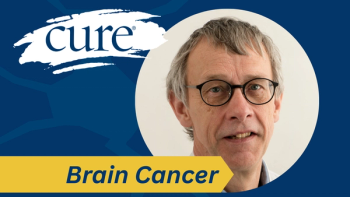
Preventable, treatable and beatable!
March is Colorectal Cancer Awareness Month and this year means I'm well into 15 years of living with stage 4 colon cancer. I'm amazed, more than ever, at the progress that has been made and continues to be made every day. Just a short decade ago colon, rectal and even colonoscopy were words whispered in a hushed tone hidden behind an open palm. It was a cancer that caused embarrassment and was definitely not a "sexy" cancer. There was no pretty pink or feminine qualities included. When I told people that it was what I had, most would look at me with shock or simply keep their lips pursed shut with a shake of their head.The early months of my diagnosis were filled with fear and angst. Every treatment held dread and side effects were difficult. As I continued to live and grab the "muchness" of life at hand, we slowly started to LIVE again; learning to fully embrace the time that we were so fortunate to borrow. Being diagnosed 19 years before I should have even needed a colonoscopy was a terrible shock. Even now, I'm still four years from that magical milestone of 50. Yet I've beaten the odds, having grasped the one and only treatment available at my initial diagnosis to literally "growing up" with each new discovery. There are now multiple chemotherapy and biologic agents that I've benefited from including 5-FU, levamisole (no longer used), Leucovorin, Irinotecan (FOLFIRI), oxaliplatin (FOLFOX), Xeloda, Avastin, Erbitux, Vectibix, Stivarga, Zaltrap and clinical trials that offer even more agents around the corner. There have been targeted treatments as well that have helped to keep me alive including SIR-Spheres, radiofrequency ablation, external beam radiation, and CyberKnife. I've also been fortunate to see what was once a diagnosis discussed as a death sentence become one that often can be downstaged to no evidence of disease or NED. There is an increased focus on treating metastatic (cancer that has spread) and the survivorship issues that are faced by those after treatment ends. I'm proud to say that I've been there for much of the advocacy and effort to help make that happen. I've met countless survivors along my journey who were diagnosed in their late 20s and early 30s. Still others have either been diagnosed earlier in the disease process or have had access to treatment and care that I'm confident is due to the awareness that we've shouted from the rooftops.As March continues to unfold, make colon cancer your priority. Know your family history. Share it among family members. Learn the warning signs and pay attention to them. They include:> Blood in your stool or bleeding from your rectum
> Unexplained weight loss
> An ongoing bloated feeling, cramping, or pain in your abdomen
> Constant tiredness or weakness
> A change or alternating bowel habits - such as diarrhea, constipation or narrow stools
> Unexplained anemia
> Feeling that your bowel does not empty completely
> Jaundice (yellowish color of the skin and/or white part of the eye)If you have symptoms, a family history or are 50 years of age or older please have a colonoscopy! It could save your life or the life of someone you love. Remember, colon cancer is preventable, treatable and beatable! Let's do it!Suzanne Lindley has been living with metastatic colorectal cancer since 1998. She is the founder of YES! Beat Liver Tumors, an organization for individuals living with metastatic liver tumors, and an advocate for Fight Colorectal Cancer.




